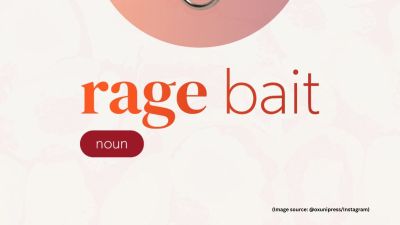For more than two years, the Haryana government has been citing a note issued by the Department of Personnel and Training (DoPT) to prevent a CBI probe into multi-crore forestry scams and other illegalities, allegations that go all the way up to Chief Minister B S Hooda’s office.
After IFS officer Sanjiv Chaturvedi, who blew the whistle on the scams, moved the Central Information Commission (CIC) with questions on the note and its legality, the CIC on May 20 set the PMO a seven-day deadline to come clean on the note. On July 30, the CIC issued a notice to the PMO for noncompliance of that order.

The note contends that the Centre has no jurisdiction to intervene if states violate central Acts or harass whistleblowers belonging to the All India Services and, therefore, an inquiry conducted by the Ministry of Environment and Forests was “ultra vires of their powers and.devoid of any force of law”.
The MoEF had conducted its inquiry in 2010. In December 2011, the Central Vigilance Commission (CVC) advised the MoEF “to take up the matter of registration of FIR with the state government and subsequent transfer of the case to the CBI”, confirming that the agency was ready to probe the cases.
Earlier in 2011, Chaturvedi wrote to the PMO seeking a CBI probe. The file was referred to the DoPT, which in February 2012 wrote the confidential note to the PMO.
On the CVC’s prodding, when the MoEF asked Haryana in March 2012 to file FIRs and entrust the matter to the CBI, the state government used the note to stonewall the ministry and counter the opposition in the assembly. The note has remained the state’s key defence since Chaturvedi moved the Supreme Court in November 2012 seeking a CBI probe. Then, in April 2014, the Hooda government moved the high court against the Centre on the strength of the same note, questioning the MoEF’s authority to probe such matters.
While the confidential note was meant for the PMO, M M Joshi, a serving IFS officer in Haryana and a prime accused in the scams and violations, filed an RTI application a week after it was issued. In three working days, the DoPT handed Joshi the note, which was third-party information, without inviting objections from Chaturvedi, which is mandatory under Section 11(1) of the RTI Act.
Armed with the note, Joshi moved the Central Administrative Tribunal (CAT) against the whistleblower in March 2012. The DoPT was made a party in the case but it did not submit its opinion in the tribunal. After one-and-a-half years, the case was dismissed in August 2013 by the principal bench of the CAT.
The delay
Story continues below this ad
When Chaturvedi challenged the legality of the note, the PMO in May 2012 asked DoPT for a clarification. It took 17 months and six reminders before the DoPT defended the note in September 2013 while admitting that the Department of Legal Affairs did not “specifically comment” on the key issue of the Centre’s jurisdiction.
The PMO wrote back, asking for specific comments on the legality of the MoEF inquiry and the recommendation for a CBI probe. Ten months on, the DoPT is yet to reply. Contacted repeatedly, Dr Jitendra Singh, MoS, DoPT, refused to explain the delay.
In October 2013, Chaturvedi filed an application under the RTI Act, seeking the minutes of the meetings between the PMO and DoPT officials and action-taken reports on his case so that he could initiate legal proceedings against the officials concerned for “manufacturing and leaking a blatantly anti-constitutional opinion”. He also sought to know if the DoPT note was approved by the cabinet minister concerned (prime minister himself).
The First Appellate Authority directed that the information be provided to Chaturvedi by November 25, 2013. Instead, the PMO wrote to the MoEF that the PMO “cannot enter into a communication with individual members of the services” and that the MoEF should take suitable action against the officer for any “further breach of established procedure”.
Story continues below this ad
Chaturvedi wrote again to the prime minister in March 2014, before approaching the CIC. On May 20, chief information commissioner Sushma Singh ruled that the information sought under the RTI was “disclosable” and set a week’s deadline. The new government took over on May 26 but the PMO maintained its silence. Two months on, the Commission issued the latest notice, asking the PMO to furnish a compliance report within three weeks.
While UPA-2 dragged its feet, a number of MPs including the CPM’s Basudeb Acharia and the BJP’s Rama Devi wrote to then prime minister Manmohan Singh for a CBI probe. Last month, it was BJP MP and the party’s national executive member Udit Raj’s turn to write to Dr Jitender Singh. Pointing out that “the officers who manufactured this anti-constitutional opinion under political pressure are still continuing in your department”, Raj urged the minister to ensure that “the said opinion is withdrawn” and “accountability is fixed.for its unauthorised leakage”.
Chaturvedi refused to comment. Since 2007, he has been at the receiving end after raising several allegations of corruption and violation of laws. It took seven years, four presidential interventions and an MoEF inquiry to revoke the suspension order and chargesheet slapped on Chaturvedi by the state. In 2012, he moved out of Haryana on a deputation to the health ministry.








